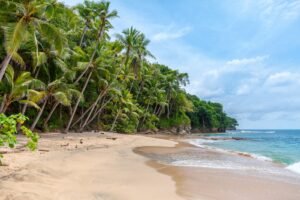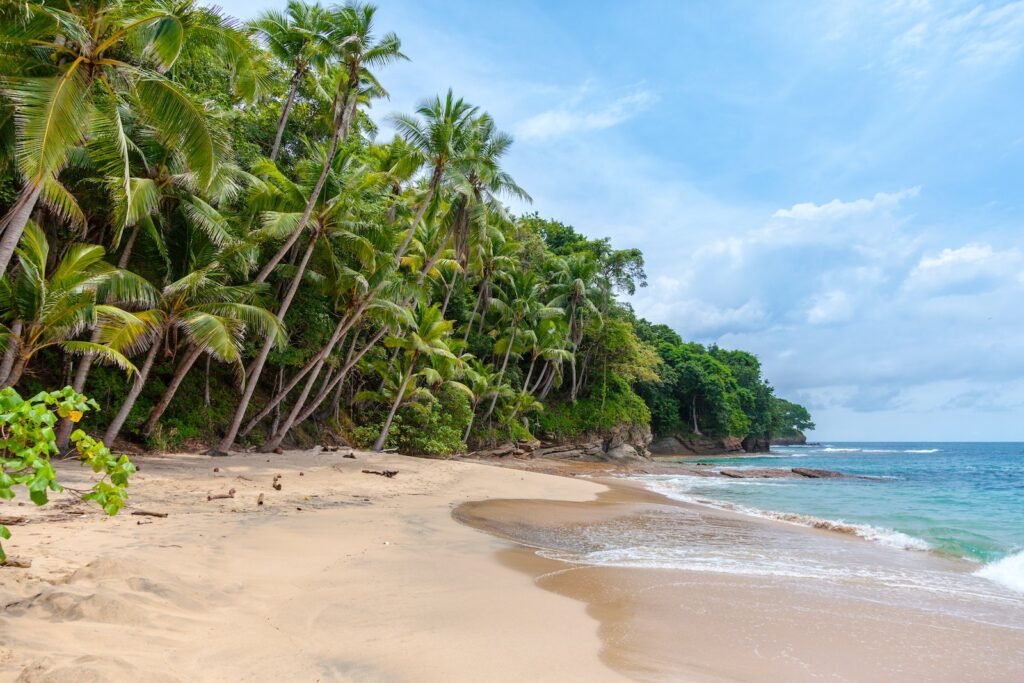Living Alone on a Tropical Island
Living alone on a tropical island might seem like a dream for many people. The idea of escaping society, embracing solitude, and enjoying the freedom to live life on your own terms is undeniably appealing. This article explores the allure of such a lifestyle, the practical considerations of living alone on a tropical island, and the challenges and joys that come with it.

An Escape from Society: Embracing Solitude and Independence
Living alone on a tropical island offers a unique opportunity to escape the pressures and demands of society. It allows individuals to embrace solitude and enjoy a peaceful existence away from the hustle and bustle of urban life. With no obligations to conform to societal norms or expectations, one can fully explore their individuality and live life on their own terms. It is an opportunity to discover oneself and embrace the freedom that comes with independence.
The Allure of a Tropical Paradise: Beauty and Serenity
Tropical islands are renowned for their breathtaking beauty and serenity. Living alone on such an island means being surrounded by pristine beaches, crystal-clear waters, and lush greenery. The constant presence of nature’s wonders provides a sense of peace and tranquility, fostering a deep connection to the environment. The gentle sound of waves, warm sunsets, and the vibrant colors of tropical flowers create an idyllic backdrop for a fulfilling life.
What It Takes to Live Alone: Practical Considerations
Living alone on a tropical island requires careful planning and consideration. One must ensure access to basic necessities such as food, water, and shelter. Depending on the location, there may be limited resources, and self-sufficiency becomes crucial. Creating a sustainable lifestyle, considering factors such as energy, waste management, and transportation is necessary. Additionally, knowledge of local customs, regulations, and language is essential for seamless integration into the community.
The Joys of Self-Reliance: Discovering Your Abilities
Living alone on a tropical island encourages self-reliance and self-discovery. In such an environment, individuals are forced to rely on their own skills and abilities to navigate daily life. From building shelter to growing food, one becomes intimately involved in every aspect of their existence. This self-reliance fosters personal growth, boosts confidence, and allows individuals to uncover hidden talents and capabilities, often leading to a profound sense of accomplishment.
Building a Sanctuary: Creating a Comfortable Living Space
Creating a comfortable living space is crucial for a fulfilling life on a tropical island. Individuals can design their own sanctuary, tailored to their preferences and needs. From simple beach huts to eco-friendly villas, the possibilities are endless. Utilizing local materials and incorporating sustainable practices not only ensures a harmonious coexistence with nature but also adds a unique charm to the living space. A well-designed sanctuary becomes a refuge from the outside world, offering solace and comfort.
The Challenges of Isolation: Dealing with Loneliness
Living alone on a tropical island also comes with its fair share of challenges, one of which is loneliness. The isolation from society can sometimes lead to feelings of loneliness and longing for human connection. However, with proper coping mechanisms and a proactive approach to building relationships, this challenge can be overcome. Engaging in activities with the local community, participating in cultural events, and fostering connections with fellow island dwellers and visitors can alleviate feelings of isolation.
Embracing Nature: Exploring the Island’s Biodiversity
One of the greatest joys of living alone on a tropical island is the opportunity to immerse oneself in the island’s rich biodiversity. From vibrant coral reefs teeming with marine life to lush rainforests housing exotic flora and fauna, the island becomes a living laboratory of nature. Exploring the island’s beauty, whether through snorkeling, hiking, or bird-watching, allows for a deep appreciation of the natural world and fosters a sense of gratitude for the privilege of living in such a remarkable environment.
Finding Happiness in Simple Pleasures: Making the Most of Life
Living alone on a tropical island encourages a shift in perspective towards appreciating life’s simple pleasures. With minimal distractions and a slower pace of life, individuals learn to find joy in the small things. Whether it’s savoring a freshly picked fruit, watching a mesmerizing sunset, or simply enjoying a quiet moment with a book, the island’s tranquil environment promotes a sense of mindfulness and gratitude, leading to a more fulfilling and contented life.
Nurturing Relationships: Connecting with Locals and Visitors
While living alone on a tropical island provides the opportunity for solitude, fostering relationships with the local community and visitors is also important. Connecting with locals allows for cultural exchange, learning from their wisdom, and understanding the island’s traditions and history. Interactions with fellow visitors can bring diversity and new perspectives. Balancing the desire for solitude with a genuine connection to others enriches the island experience and adds depth to one’s overall sense of fulfillment.
Balancing Love and Freedom: Seeking Companionship vs. Independence
Living alone on a tropical island raises the question of balancing love and freedom. While independence is cherished, the desire for companionship and human connection may also arise. Striking a balance between solitude and seeking companionship is a personal journey. Some may find solace in occasional visits from loved ones, while others may form deeper connections with fellow island dwellers. Understanding personal needs and desires is vital in finding the right balance between love and freedom.
The Lessons Learned: Personal Growth and Reflection
Living alone on a tropical island is a transformative experience that fosters personal growth and reflection. It challenges individuals to confront their fears, learn new skills, and unravel their true potential. The solitude provides an ideal environment for introspection, allowing for self-discovery and a deeper understanding of one’s desires, values, and purpose. The lessons learned on this journey become invaluable, shaping individuals into more resilient, self-aware, and fulfilled human beings.
Living alone on a tropical island offers a unique opportunity to embrace love and freedom simultaneously. It is a lifestyle that combines the allure of a tropical paradise, the joys of self-reliance, and the challenges of isolation. By nurturing relationships, connecting with nature, and finding happiness in simple pleasures, individuals can create a fulfilling and meaningful life. Ultimately, living alone on a tropical island provides a remarkable opportunity for personal growth, reflection, and embracing the beauty and serenity of life.

